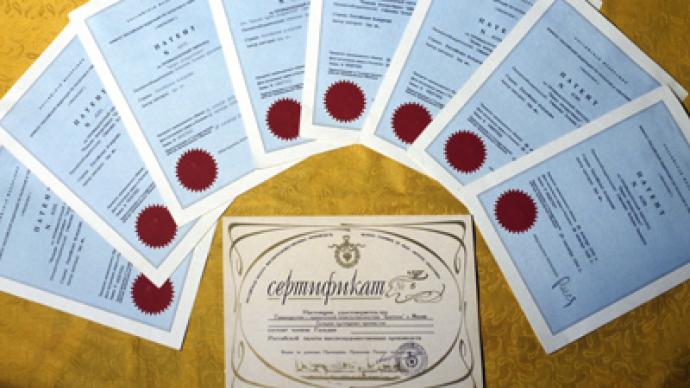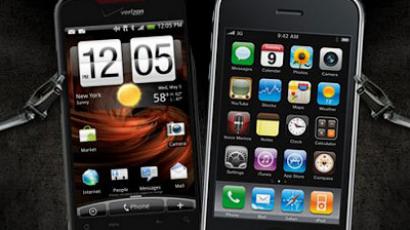Can anybody win the patent war?

Apple’s claim to fame that it came up with the iPad tablet concept has suffered a damaging blow thanks to an almost twenty year old video. It brings into question whether the tech company ‘patent wars’ are really worth fighting.
Apple has locked horns with Samsung and other tablet computer makers over the design which the company sees as a patent infringement. The video that blows Apple out of the water was produced by the Knight-Ridder newspaper publisher in 1994. It shows a machine extremely similar to the iPad and Galaxy Tab, used as the basis of the ‘electronic newspaper’ of tomorrow. A judge has already ruled against Apple Inc in a patent case over the design, saying the video is evidence the look of the tablet computer is ‘obvious’.
All the big tech companies appear to be in a constant patent flux, fighting lawsuits, buying up other companies for their patents, and generally defending their intellectual property. Google and Oracle are battling over software patents in the Android operating systems; Facebook, proudly waves 650 newly-acquired AOL patents it bought from Microsoft for $550 million to bolster its legal battle with Yahoo. The price of $1.3 million a patent reflects the crucial role that patents are increasingly playing in the business and legal strategies of the world's major technology companies. Following the sale, AOL will continue to hold a significant patent portfolio of over 300 patents and patent applications spanning core and strategic technologies, including advertising, search, content generation/management, social networking, mapping, multimedia/streaming, and security among others. AOL also received a license to the patents being sold to Microsoft.Google bought Motorola Mobility for $12.5bn for its more than 17,000 mobile phone related patents. “The sector is seeing a boom with innovations being introduced in this particular business more often than in any other. 8 out of 10 new businesses are in the hi-tech sector, where the need to register patent right emerges most often”, says Vladimir Rozhankovsky from investment group Nord Capital.A study from Yale Law School puts the ‘patent wars’ really into perspective. Researcher Christina Mulligan came up with what may be blindingly obvious to many. With 40,000 new tech patents registered every year, no company in the world has enough lawyers and money to check if they are infringing copyright, or their patents are being infringed. The study suggests, that if a company wants to check if it is in the clear, it would need two million patent attorneys working full time for every patent issued in a given year. The cost would be something like $400bln, which is almost double the value of the complete software industry world-wide. Twitter, on the other hand, has become the first company to surrender in the ‘patent wars’, and says it will adopt the Innovator’s Patent Agreement, promising not to use patents in a way that harms innovation, and only in defense of their intellectual property. “The IPA is a new way to do patent assignment that keeps control in the hands of engineers and designers. It is a commitment from Twitter to our employees that patents can only be used for defensive purposes. We will not use the patents from employees’ inventions in offensive litigation without their permission. What’s more, this control flows with the patents, so if we sold them to others, they could only use them as the inventor intended.” One of the big problems is current patent law is hopelessly out of date when it comes to technological innovation. There have also been howls of disapproval from engineers and inventors, warning patent greed kills innovation and makes doing business needlessly more expensive.














